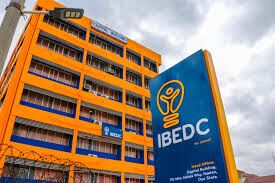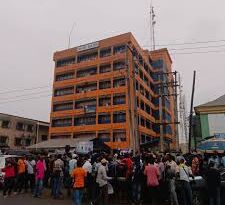The Darkness That Will Not End As IBEDC’s Fail to Provide Reliable Electricity
…As Millions of Consumers left in darkness
The Ibadan Electricity Distribution Company (IBEDC) has been at the helm of electricity distribution in Nigeria, particularly in the southwestern region.
However, the company’s performance has been marred by incompetence, leaving millions of Nigerians in darkness.
One of the most glaring examples of IBEDC’s incompetence is the persistent lack of power supply to many areas under its coverage.
Despite the company’s promises to improve electricity supply, many communities have been left without power for weeks, sometimes even months.
The situation is particularly dire in rural areas, where electricity is a luxury that many cannot afford.
The lack of power supply has crippled economic activities, forcing many businesses to shut down or relocate to areas with more reliable electricity.
In addition to the economic impact, the lack of power supply has also had a significant social impact.
Many families have been forced to rely on generators, which are not only expensive but also pose serious health risks.
The noise pollution and air pollution from generators have become a major concern for many residents.
Despite the company’s claims to be working to improve electricity supply, the reality on the ground tells a different story.
Many residents have reported seeing IBEDC officials collecting revenue from customers without providing any electricity.
The lack of accountability and transparency within the IBEDC has also been a major concern.
Many residents have reported being overcharged for electricity they never received, with some even receiving bills for months when they had no power.
The Nigerian government has also come under fire for its handling of the electricity sector.
Many have criticized the government for failing to hold IBEDC accountable for its incompetence, instead allowing the company to continue providing subpar services.
In recent months, the IBEDC has faced widespread criticism for its handling of electricity distribution.
Many have called for the company to be held accountable for its incompetence, with some even calling for the company to be privatized.
Despite the criticism, the IBEDC has continued to maintain that it is working to improve electricity supply. However, the reality on the ground tells a different story, with many residents continuing to suffer from the lack of power supply.
The impact of IBEDC’s incompetence has been felt far and wide, with many businesses and individuals suffering as a result.
The lack of reliable electricity has also had a negative impact on the country’s economy, with many investors citing the lack of reliable electricity as a major deterrent to investing in Nigeria.
Wale Owoade, who stays at the Monatan area of Ibadan, berated the distribution company, saying the supply has been sub-optimal.
He explained that he had spent over two years in house but he had not used up to N10,000 electricity bill.
Owoade said “I have spent over two years in the house but I have not used up to N10, 000 electricity bill
Also speaking, the founder of Ibadan Entrepreneur Network, Dr. Oyenike Adeleke, toed the same line.
Adeleke added that most of her home appliances had been damaged due to poor and low power supply.
She said: “The power supply is terrible. It is too erratic. When it is restored, it will have low voltage. It has damaged many of my devices and bulks”.
As the country continues to struggle with the lack of reliable electricity, many are calling for urgent action to be taken.
The government must hold IBEDC accountable for its incompetence and work to provide reliable electricity to all Nigerians.
In conclusion, the IBEDC’s incompetence in handling electricity distribution has had a devastating impact on many Nigerians.
The lack of reliable electricity has crippled economic activities, affected education, and had a negative social impact.
Urgent action must be taken to address this issue and provide reliable electricity to all Nigerians.




